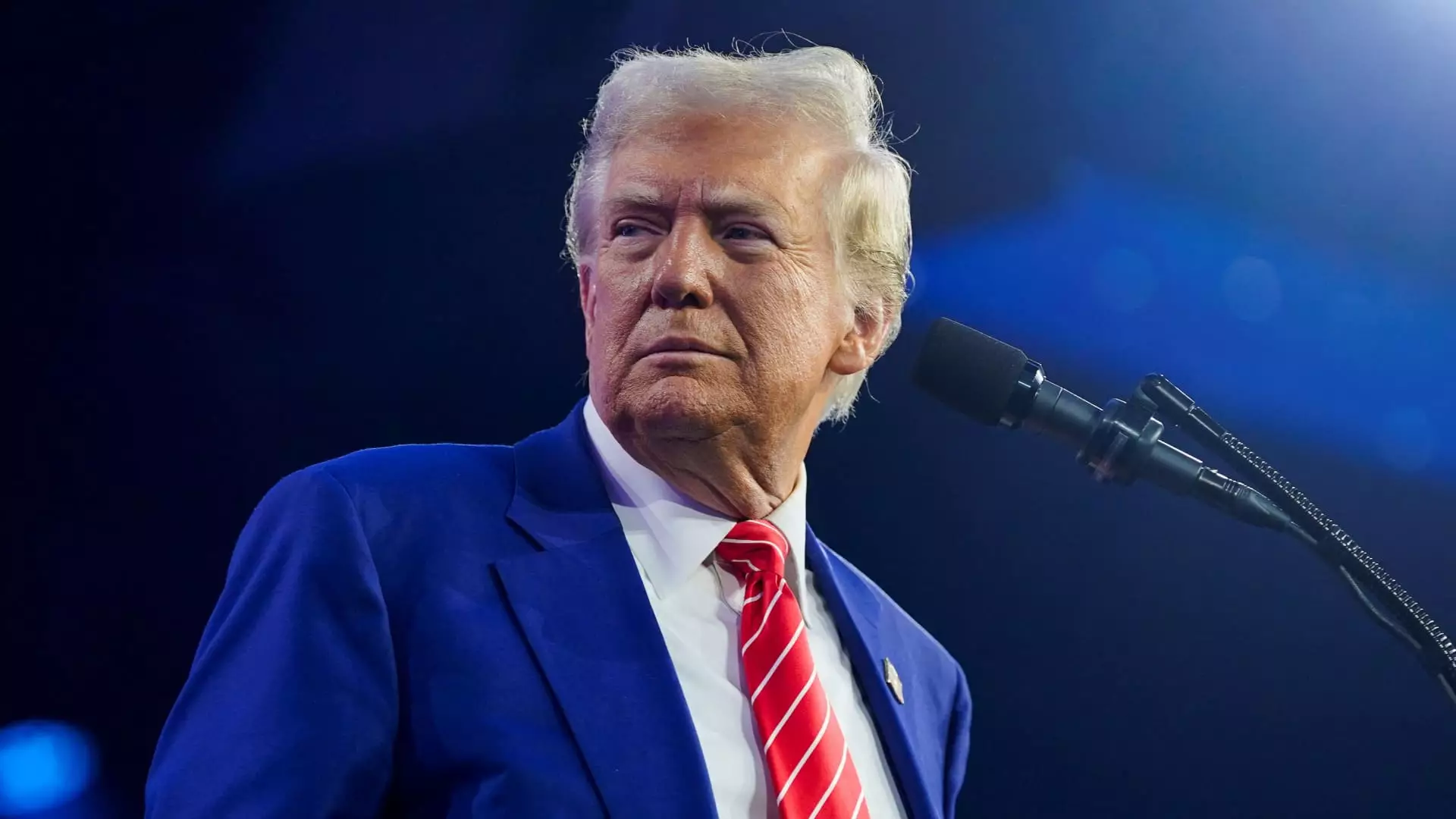In a surprising series of Christmas Day posts, President-elect Donald Trump utilized his Truth Social platform to address not only the festive spirit but also some surprisingly bold geopolitical ambitions. The intention behind these posts seems to oscillate between holiday cheer and the assertion of American dominance in key geographic regions—Canada, Greenland, and the Panama Canal. Trump’s remarks reflect a dual narrative: one that embraces goodwill while simultaneously stirring the pot in international relations.
The juxtaposition of festive greetings with controversial political commentary raises questions about the appropriateness of the medium and the message. On one hand, Trump extended well-wishes to the military and global leaders, but on the other, he leveled criticisms that echoed his familiar rhetoric regarding American interests abroad. These posts, particularly during a time typically reserved for goodwill, provoke a reconsideration of how geopolitical discussions permeate everyday life.
Rethinking National Identity: The Annexation of Canada?
In his posts, Trump hinted at an unconventional vision for Canada, suggesting the potential for annexation as the United States’ 51st state. Framing this proposal in economic terms, he claimed that such a union would drastically relieve Canadian taxes while bolstering economic opportunities. However, this raises significant concerns about national sovereignty and the complexities of merging two distinct cultures and political systems. Trump’s characterization of Canadian Prime Minister Justin Trudeau as a “governor” not only diminishes the agency of Canada but also reiterates a colonial mindset.
Moreover, the idea of Canada transitioning into a state under U.S. governance glosses over the substantial implications such a move would entail. This suggestion, while perhaps rooted in hyperbolic jest, sheds light on Trump’s willingness to challenge international norms and navigate the tumultuous waters of national identity. It prompts critical discourse about how citizens of both nations would respond to such an unorthodox proposal.
Greenland and National Security: A Bold Proposition
Trump’s declarations concerning Greenland seem to stem from a narrative of national security, an ongoing theme in his political discourse. By asserting that Greenland’s acquisition is critical for U.S. security interests, he echoes his previous interest in buying the territory, a move met with widespread ridicule during his first term. Nevertheless, this renewed focus raises questions about the legitimacy of American interests in regions traditionally viewed as international territories.
The complexities surrounding Greenland are multifaceted. While Trump claims to represent the interests of its residents, this statement invites skepticism about whose viewpoints are actually being considered. It also brings to light the historical context of colonialism and the current discourse surrounding self-determination for indigenous peoples and territories.
Trump’s nostalgia for the Panama Canal underscores the historical grievances felt by many Americans regarding control over vital infrastructure. That the United States played an instrumental role in its construction lends a layer of complexity to his assertions about “taking control” of the vital shipping channel that has been under Panamanian authority since the late 20th century. By labeling current fees as “rip-offs,” Trump inadvertently reflects a sense of entitlement that overlooks the geopolitical reality of post-colonial power dynamics.
The appointment of Kevin Marino Cabrera as ambassador to Panama, coupled with the critiques on canal operations, signals the administration’s intention to renegotiate these historic agreements. This endeavor could either restore some semblance of American interests or spark backlash from both Panama and the global community, who may view these actions as neocolonial in nature.
President-elect Trump’s Christmas Day posts serve as a microcosm of his broader political strategy—pushing boundaries while appealing to a base that values assertive nationalism. As these narratives unfold, they demand close attention from both national citizens and international observers. The balance of political candor, holiday spirit, and historical grievances presents a complex landscape that could redefine U.S. foreign relations in the coming years. Ultimately, the implications of such proposals and their reception will resonate far beyond the confines of social media posts, prompting a reevaluation of America’s role on the world stage.


Leave a Reply